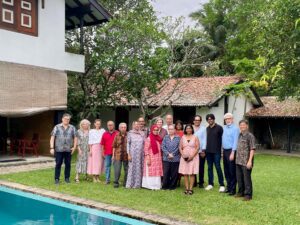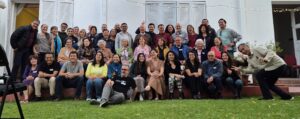Membership overview
The main challenge of 2021 was the inability to gather and do latihan in person together due to the COVID-19 pandemic. The biggest success for the Zone this year was the creation of the Subud USA International Archives at the Amani Subud Center in Washington, DC in October. The paper archives of Subud USA (400+ boxes including archives on non-U.S. countries) were transported to the Amani Center and established in a state-of-the-art archival facility. It is hoped that this will eventually host all the paper and digital archives Area 3. In 2021, both Subud Mexico and Subud Canada passed new bylaws.
Communication and activities
The Zone 7 Council meets quarterly via Zoom. We exchange emails between meetings, and have a WhatsApp group, which is the main means of communication with the National Committee in the Caribbean. In the second year of the pandemic, members in Zone 7 continued to connect with one another as best as they could and did latihan with each other in person only when local laws allowed.
Many countries held national and regional gatherings using Zoom, and some groups like Mexico City led a weekly program of reading Bapak’s Talks prior to latihan. All national dewans were grateful for the regular meetings and simultaneous latihans with International Helpers this year. While we did not host an in-person Zone 7 Annual Meeting in 2021, we hope to in 2022.
Wings activities, enterprises and centerprises
Susila Dharma is officially organized and functioning in the Caribbean, Canada, USA, and Mexico. SICA and SESI are engaging members in the USA and throughout the Zone via online events. In Suriname and Mexico, it has been more challenging to find members to act as wing representatives. In Suriname, all wing initiatives are coordinated by the National Committee in consultation with the dewan.
In Zone 7, Subud owns 23 properties and rents 46 properties. In Canada, all four Subud houses generate revenue, and pre-pandemic approximately 90% of the national budget came from hall rental income. The USA owns 15 Subud houses and generates revenue from several. Mexico owns two Subud houses and generates revenue from one. Suriname owns two Subud houses and has started to rent them out in recent years.



